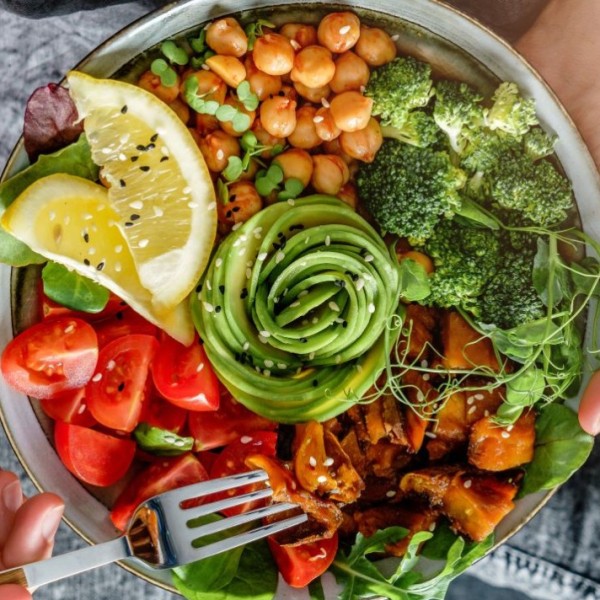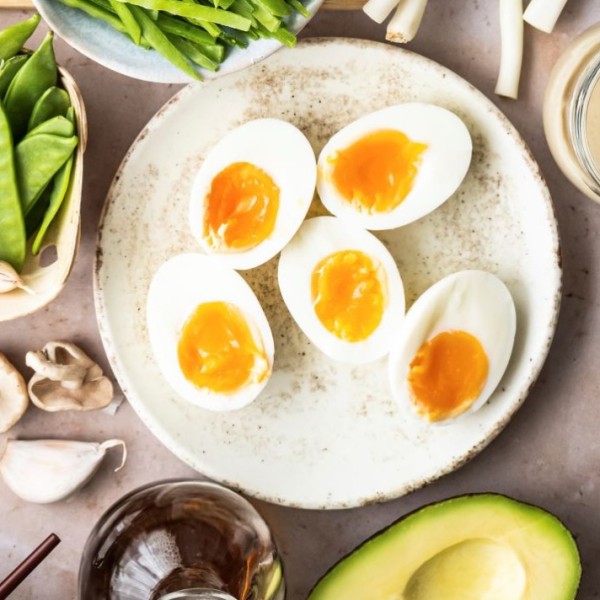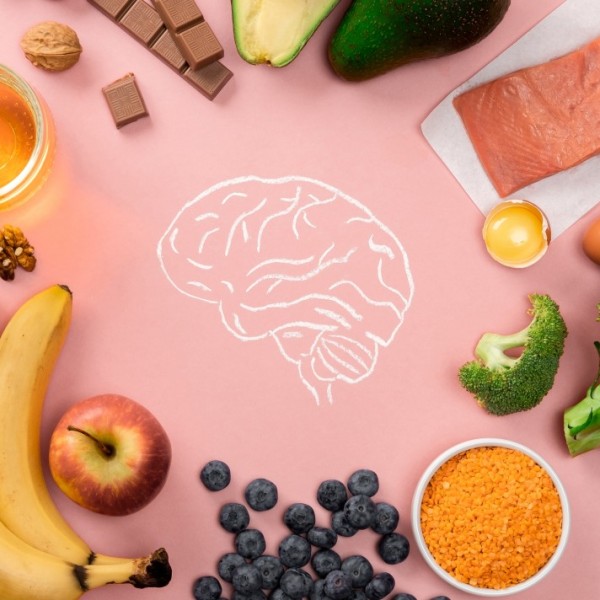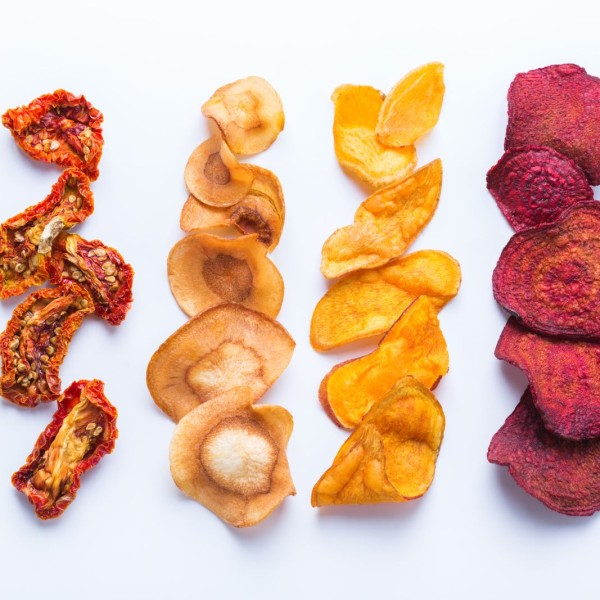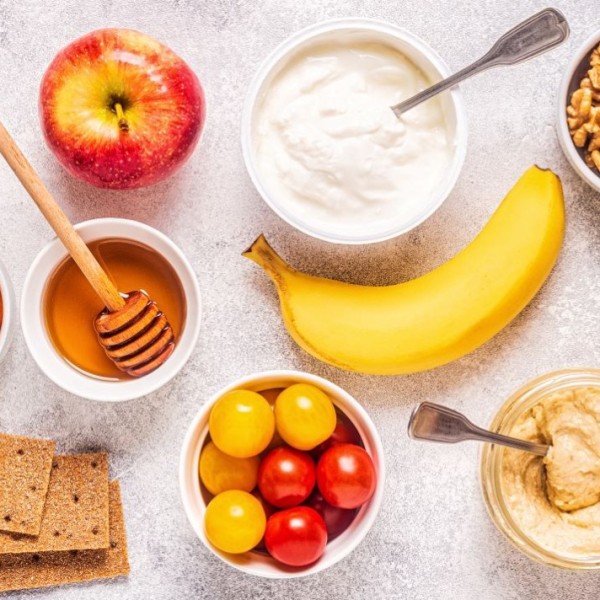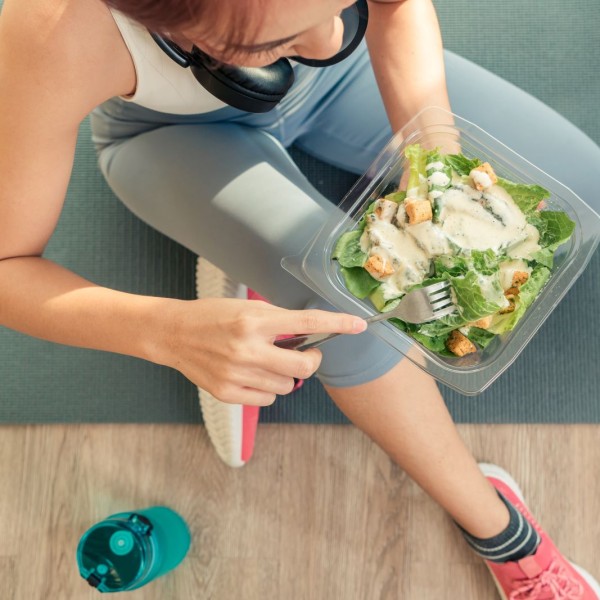Do you train regularly and want to take care of your training-related nutrition? Or maybe you are just starting your adventure with physical activity, but you still lack energy during exercise? This article is for you!
In this article, you will learn how to eat to make your training effective and your post-exercise recovery effective.
Carbohydrates are essential for preparing a pre-training meal. They are contained in grains, groats, flakes, starchy products, legumes, fruits and vegetables. They can affect our energy levels, concentration and endurance. Those that are minimally processed, e.g. whole grains or vegetables, will be characterized by a so-called low glycemic index (GI). This means that they will gradually increase blood glucose levels, and the use of energy will be spread out over a longer period of time. Products rich in simple sugars and poor in dietary fiber will have a so-called high glycemic index. Among them, you will find some fruits (e.g. ripe bananas and exotic fruits), sweets, so-called white cereal products, honey, jams. These will cause a sudden spike in blood glucose, which will give you a quick boost in energy, but also a sudden drop in exercise capacity.
Consuming carbohydrates with a low glycemic index translates into better sports results. On the other hand, a large amount of dietary fiber eaten too close to training can cause digestive problems. Therefore, the closer you are to training, the lower the fiber content should be, and the higher the index.
What else is worth avoiding before training? First of all, hard-to-digest products that can cause discomfort during the activity, i.e.:
- smoked products, fatty cheeses and sausages,
- fast food,
- products that cause flatulence such as legumes, cabbage, onion or garlic,
- large amounts of fat.
Now let's put it all together and sum it up:
- 2-4 hours before training you can allow yourself a classic dinner or breakfast, i.e. a combination of low GI carbohydrates with protein and a small amount of fat, e.g. a bagel with roasted chicken breast with avocado, lettuce, tomato and cucumber, or a dinner consisting of roasted meat, boiled potatoes and salad with olive oil.
- 1-2 hours before training limit the portion of the meal you eat and make sure the form of the dish is easily digestible - combine high GI carbohydrates with protein, e.g. a milk and fruit cocktail, rice with roasted apple and yoghurt, a pancake with cottage cheese and jam.
- Less than an hour before training, focus primarily on simple sugars, which will give you a quick shot of energy, e.g. fruit cocktails, bananas, dried fruit, jelly candies, fruit purees.




